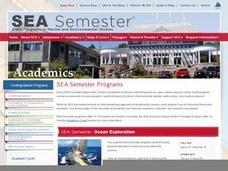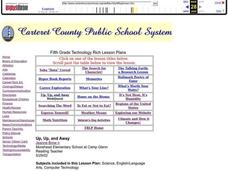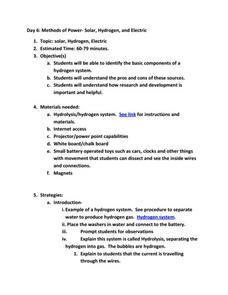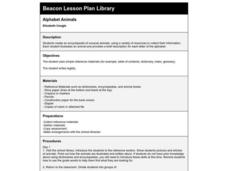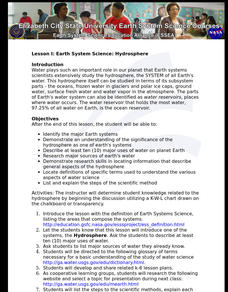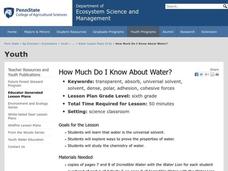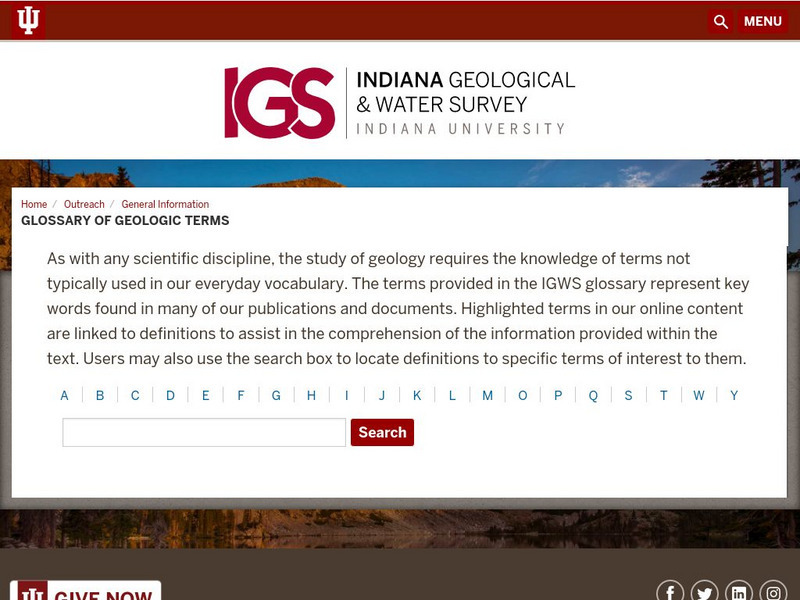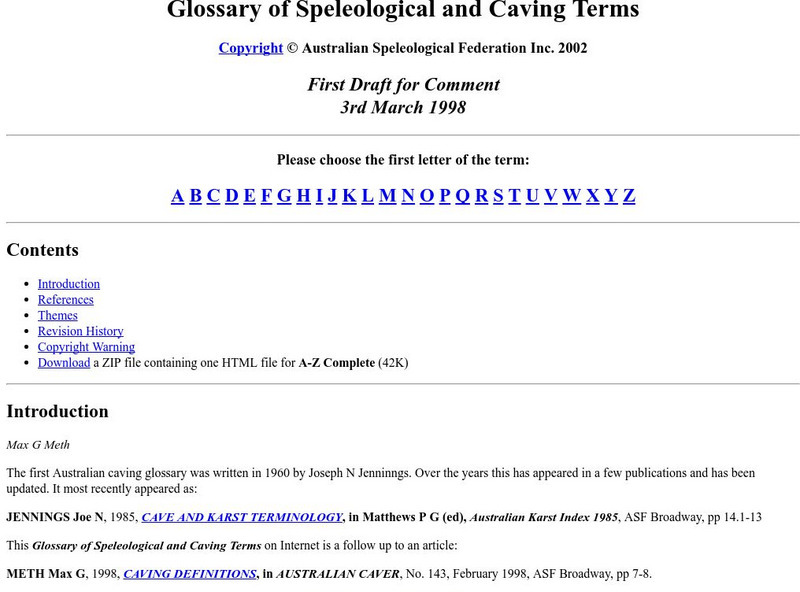Curated OER
Dig Into the Dictionary
Second graders explore their vocabulary by participating in a dictionary word find activity. In this vocabulary lesson, 2nd graders locate words in a dictionary based on the beginning letter which must match the teacher's...
Curated OER
Coastal Landforms
Students explore landforms. Using the internet, students research the main landforms. They define landforms and download images into a word document. Students create their own picture-dictionary.
Scholastic
Study Jams! The Kingdoms of Life
Life science learners discuss the characteristics of five kingdoms of life: animals, plants, fungi, protists, and bacteria in this video. Viewers find out from the dialogue that scientists group organisms according to similarities. This...
Curated OER
Give a Hoot About Owls
Students research basic information about owls. They complete a class KWL chart, and conduct research on owls using the Internet and a variety of resource books. Next, they write an owl acrostic poem and a report using their research...
Curated OER
How the Environment Affects Our Health
Ninth graders explore how the environment affects health. In this infectious disease instructional activity, 9th graders investigate what environmental situations cause infections diseases. Students study the symptoms, treatments,...
Curated OER
Creature From The Deep
Students become familiar with oceanography terms by writing an oceanography horror story.
Curated OER
Up, Up, and Away
Fifth graders participate in a WebQuest that introduces them to a study on clouds and how they relate to weather systems.
Curated OER
Guided Reading Organizer for Chain Reaction
The class uses Chain Reaction, a magazine, to build a better understanding of Latin and Greek roots found in scientific vocabulary. They use two attached worksheets to help them read a scientific article, using visual clues and their...
Alabama Learning Exchange
Echolocation Stations: Exploring Sound
Fourth graders explore the concept of echolocation during a unit on whales. They listen to the book and watch the Reading Rainbow video for "Humphrey: The Wayward Whale," explore various websites, and conduct experiments to demonstrate...
Curated OER
Dichotomous Keys
Students define the word dichotomous and explain why a dichotomous key is a useful tool in identifying different species. Then they look up words they are unfamiliar with or mollusk reference books so students can
learn the names of...
Curated OER
Methods of Power- Solar, Hydrogen, and Electric
Students examine solar, hydrogen, electric power. In this research based lesson, students will do simple investigations, view videos, discuss, and research how these three types of energy are used for power. They illustrate a...
Alabama Learning Exchange
Honeybees
Pupils explore the various functions of bees within the hive and explain the process of making honey. They use numerous resources to find their information including the internet, library books and their science texts.
Curated OER
Alphabet Animals
Second graders create an encyclopedia of unusual animals, using a variety of resources to collect their information. Each student illustrates an animal and provides a brief description for each letter of the alphabet. A very nice,...
Curated OER
Centipede or Millipede?
Students discuss millipedes and centipedes in terms of their classification as arthropod. Using a diagram, students categorize and compare and contrast the characteristics of millipedes and centipedes based on their discussion of...
Curated OER
Earth System Science: Hydrosphere
Students identify the major Earth systems, and describe at least ten major uses of water on planet earth. They research major sources of earth's water, and describe general aspects of the hydrosphere.
Curated OER
How Much Do I Know About Water?
Sixth graders explore ways to analyze the properties of water and examine the chemistry of water. In this water lesson students work in groups and complete several activities.
Curated OER
How Much Do I Know About Water?
Sixth graders explore how water behaves on a penny. In this states of matter lesson, 6th graders observe water as they add drops to a penny. This lesson helps students apply the adhesive properties of water to the water cycle.
US Geological Survey
Usgs: Water Science Glossary of Terms
The United States Geological Survey offers a complete look at water science in glossary form. Take advantage of the topic guides at the top of the site. You'll find great maps, clipart and activities centers. Click Home to access the...
Science Struck
Science Struck: Glossary of Chemistry Terms and Definitions
Gives the dictionary definitions for a lengthy list of chemistry terms.
Science Struck
Science Struck: Glossary of Geology Terms and Definitions
Gives the dictionary definitions for a lengthy list of geology terms.
BiologyWise
Biology Wise: Botany Terms Glossary of Botanical Terms
Gives the dictionary definitions for a lengthy list of terms used in botany.
BiologyWise
Biology Wise: Glossary of Biology Terms and Definitions
Gives the dictionary definitions for a lengthy list of biology and microbiology terms.
Indiana University
Indiana University Bloomington: Glossary of Geologic Terms
An extensive glossary of geologic terms. Includes links to items in the university's bookstore - many of these resources are free and can be accessed online.
Other
Glossary of Speleological and Caving Terms
This site features a glossary of speleological and caving terms. This resource is easy to use and gives a an adequate definition for each.





